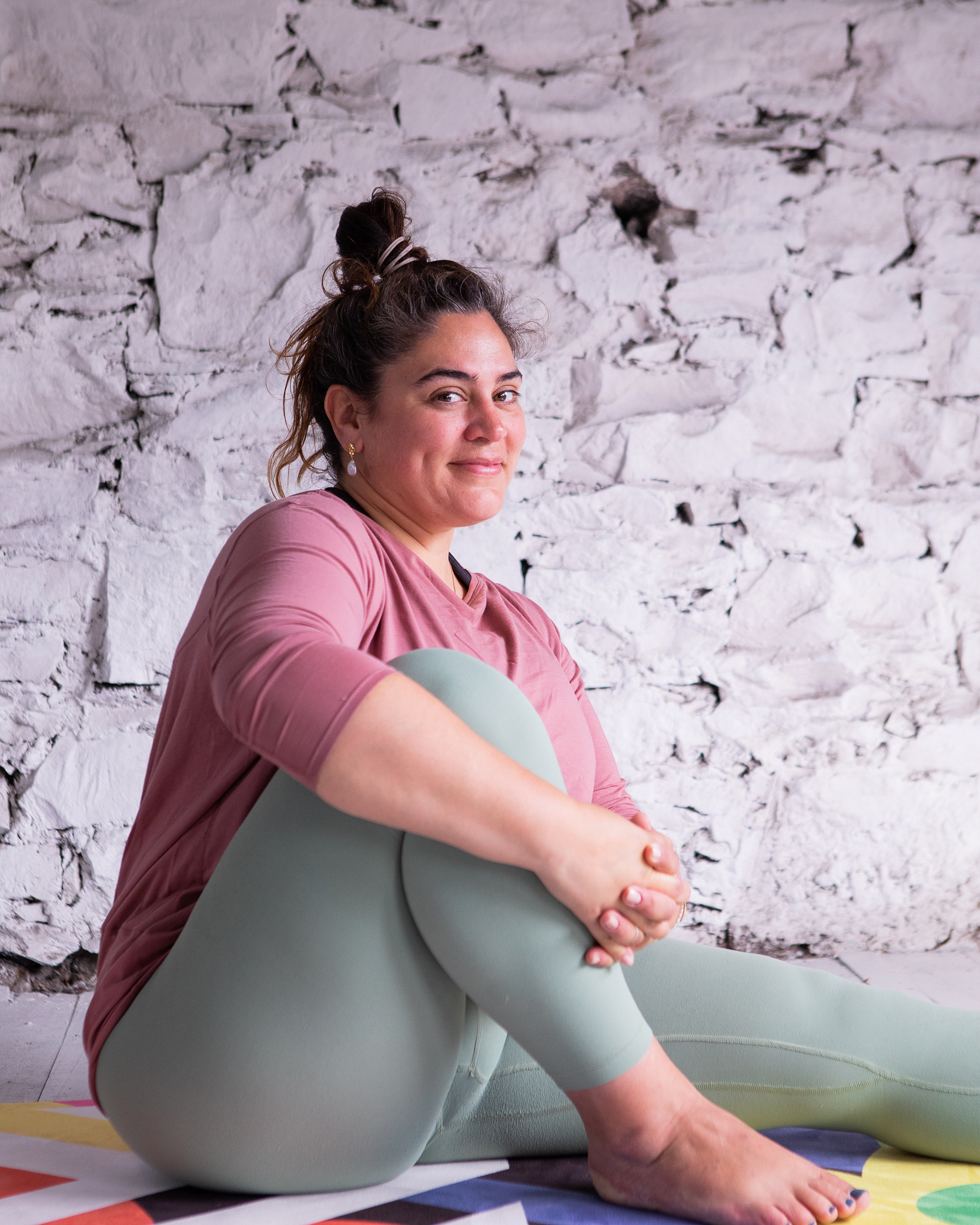We all know that family is supposed to be our safe haven—a place where we can be ourselves without judgment. But let’s be real: sometimes, family can be the exact opposite. Whether it’s an offhand comment about your weight at Thanksgiving dinner or a so-called “joke” at a family reunion, body-shaming within families is unfortunately common. And because these remarks come from people we care about, they can sting even more.
You might brush it off at the moment, but those comments can linger, affecting your self-esteem and your relationship with your body. So, how do you respond when a family member body-shames you? It’s a tough situation, but there are ways to handle it that protect your mental and emotional wellbeing without causing a family rift. Let’s dive into some strategies that will help you tackle this issue head-on.
Understanding Body-Shaming
Body-shaming isn’t just about someone telling you to lose weight. It’s any negative comment about your body—whether it’s your size, shape, or any other physical attribute. These comments can come from a place of ignorance, insecurity, or even a misguided sense of “helpfulness,” but the impact on the person being shamed is often the same: it hurts.
Family members might engage in body-shaming for various reasons. Some do it because they grew up in an environment where commenting on someone’s appearance was normalized. Others might do it because they’re projecting their own insecurities onto you. And then there are those who think they’re being helpful, believing that their criticism will motivate you to change. Spoiler alert: it won’t.
The effects of body-shaming can be deep and long-lasting. It can lead to feelings of inadequacy, low self-esteem, and even disordered eating. When these comments come from family members, the impact can be even more profound because these are the people whose opinions often matter most to us. Understanding why body-shaming happens doesn’t excuse the behavior, but it does help you prepare for how to deal with it.
Preparing Yourself Mentally and Emotionally
Before you can effectively respond to body-shaming, you need to build up your mental and emotional defenses. This starts with self-awareness. Understanding your own triggers and insecurities can help you stay grounded when someone says something hurtful. If you know that comments about your weight, for example, really get under your skin, it’s important to mentally prepare yourself for the possibility of hearing them.
Self-acceptance is another crucial piece of the puzzle. It’s easier said than done, but working towards accepting and loving your body as it is can make a huge difference in how you react to body-shaming. This doesn’t mean you have to love every single part of your body every day, but acknowledging that your worth isn’t tied to your appearance is a powerful step.
Confidence is your best armor against body-shaming. When you’re confident in who you are, it’s easier to let hurtful comments roll off your back. There are many ways to build confidence, but one effective strategy is positive self-talk. Yes, it might feel a little silly at first, but telling yourself things like “I am enough” or “My body is strong and capable” can actually help shift your mindset over time.
Staying calm and composed when someone body-shames you can be challenging, especially if the comment catches you off guard. However, keeping your cool is crucial. When you respond calmly, you maintain control of the situation and prevent it from escalating. Deep breathing exercises, mindfulness, and even practicing responses ahead of time can help you stay composed when you need it most.
Effective Communication Strategies
Now that you’ve got your mental and emotional defenses in place, it’s time to think about how you’ll actually respond when someone body-shames you. The key here is to communicate your feelings assertively but not aggressively. It’s all about setting boundaries while still maintaining respect for the other person.
One of the best ways to express how a comment made you feel is by using “I” statements. For example, instead of saying, “You’re always criticizing my weight,” you might say, “I feel hurt when my weight is brought up in conversation.” This shifts the focus from blaming the other person to expressing your own feelings, which can help reduce defensiveness on their part.
You don’t have to come up with a perfect response on the spot, either. It’s okay to take a moment to gather your thoughts. You might say something like, “I need a minute to think about what you just said.” This gives you time to decide how you want to respond without feeling pressured to react immediately.
If you’re looking for some go-to phrases to use in these situations, here are a few options:
- “I don’t appreciate comments about my body.”
- “Let’s focus on enjoying our time together instead of discussing my appearance.”
- “I understand you might be concerned, but I’m taking care of myself.”
The goal is to convey that these types of comments are not okay with you and that you’d prefer the conversation to steer in a different direction.
Empathy can also play a role in these conversations. Try to understand where the other person is coming from, even if their approach is hurtful. For example, if an older family member makes a comment about your weight, it might be helpful to recognize that they grew up in a different era with different societal expectations. This doesn’t excuse their behavior, but understanding it can help you respond more calmly.
That said, empathy doesn’t mean you have to accept or tolerate body-shaming. You can acknowledge their perspective while still standing firm in your own. For instance, you might say, “I understand that you’re concerned about my health, but your comments about my body are not helpful. I’d appreciate it if we could talk about something else.”
Navigating these conversations can be tricky, especially if the other person gets defensive or upset. The important thing is to stay true to your boundaries and keep the conversation focused on your feelings rather than getting caught up in an argument. If the conversation starts to escalate, it’s okay to step away and revisit it later when everyone has had time to cool down.
Coping Mechanisms and Support Systems
After a family member body-shames you, it’s normal to feel hurt, angry, or even a little shaken. Even if you handled the situation perfectly, those words can linger in your mind, chipping away at your self-esteem. This is where coping mechanisms come in. These are the tools and strategies that help you process your emotions, heal, and ultimately move forward.
First, let’s talk about journaling. It might sound old-school, but writing down your thoughts and feelings after an incident can be incredibly therapeutic. When you journal, you give yourself a safe space to express everything you might not feel comfortable saying out loud. You can also use your journal to reflect on the situation—what was said, how you felt, and how you responded. Over time, this can help you identify patterns and triggers, making it easier to prepare for similar situations in the future.
Self-care is another crucial aspect of coping. After dealing with body-shaming, taking time to care for yourself can help you feel grounded and centered again. Self-care looks different for everyone, so do what feels best for you. Maybe it’s taking a long bath, going for a walk, or spending time with a good book. The key is to do something that makes you feel nurtured and loved.
If you find that body-shaming comments are taking a toll on your mental health, it might be time to consider talking to a therapist. Therapy provides a safe space to work through your feelings with the guidance of a professional. A therapist can also help you develop strategies for dealing with body-shaming in the future and work on building your self-esteem. There’s no shame in seeking help—taking care of your mental health is just as important as taking care of your physical health.
But you don’t have to go through this alone. Building a strong support system of friends, family members, or even online communities can make a world of difference. Surround yourself with people who uplift you, who see you for who you are, not just what you look like. These are the people you can turn to when you need a boost of confidence or just someone to listen. They can also offer perspective, helping you see the situation in a different light.
Support groups, whether in person or online, can also be incredibly helpful. These groups provide a community of people who have experienced similar challenges and can offer advice, support, and understanding. Sometimes, just knowing you’re not alone in your struggles can make all the difference.
In the end, coping mechanisms and support systems are all about taking care of yourself—emotionally, mentally, and physically. They give you the tools you need to process what happened, heal from it, and move forward with your head held high.
Moving Forward: Creating a Positive Family Environment
Once you’ve dealt with the immediate aftermath of body-shaming, the next step is to think about the long-term. How can you help create a family environment where body-shaming is less likely to happen? While you can’t control what others say or do, you can influence the overall tone and culture within your family.
One of the best ways to do this is by encouraging positive body image and self-love within your family. This doesn’t mean you need to give everyone a lecture on body positivity (although, hey, if they’re open to it, go for it!). Instead, try to lead by example. Speak kindly about your own body and avoid making negative comments about others’ appearances. When someone else in the family starts to body-shame, gently steer the conversation in a more positive direction.
It can also be helpful to have a conversation with your family members about how body-shaming affects you. Sometimes, people don’t realize the impact of their words, and a calm, honest discussion can open their eyes. You might say something like, “I’ve noticed that comments about my body really affect me, and I’d appreciate it if we could avoid that kind of talk in the future.” The goal here isn’t to make anyone feel bad but to foster understanding and encourage more respectful communication.
Changing deeply ingrained behaviors takes time, so be patient with your family and yourself. It’s likely that body-shaming has been a part of your family dynamic for a long time, and it won’t disappear overnight. But with consistent effort, you can help shift the culture within your family towards one that is more supportive and positive.
If you’re finding it difficult to change these dynamics on your own, consider enlisting the help of a family therapist. A therapist can work with your family to address issues like body-shaming and help everyone communicate more effectively. Therapy isn’t just for when things are going wrong—it can be a proactive tool for creating a healthier, happier family environment.
Remember, you don’t have to accept body-shaming as a normal part of family life. By addressing it head-on and encouraging positive behavior, you’re taking important steps towards creating a family environment that’s rooted in respect and love.
Body-shaming within families is tough to deal with, but it’s not something you have to endure in silence. By understanding why it happens, preparing yourself mentally and emotionally, and learning how to communicate effectively, you can respond to body-shaming in a way that protects your wellbeing. With the right coping mechanisms and support systems in place, you can heal from these experiences and even help create a more positive family environment in the long run.
At the end of the day, remember this: your worth isn’t defined by your body. You are enough just as you are. And while you can’t control what others say, you can control how you respond—and that’s a powerful thing.















